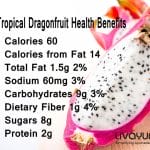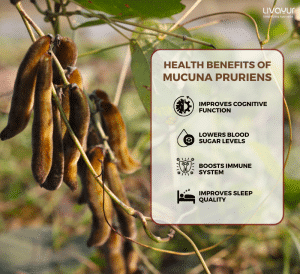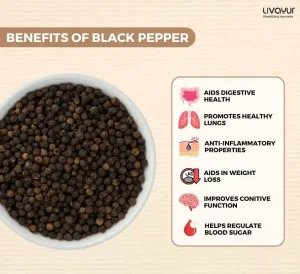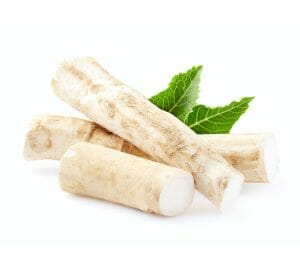This article is reviewed by an expert

Contrary to popular belief, apricots did not originate in Europe, where they are most popular today, but in Central Asia. They have a long history of cultivation, dating back over 4,000 years. Over the millennia, apricot trees were introduced to the Fertile Crescent, ancient Greece, Rome and India, primarily through the Silk Road trade routes. The history of apricots in India is intertwined with the ancient trade routes, such as the Silk Road, which facilitated the exchange of goods and cultures. While there may not be specific mentions of apricots in ancient Indian texts, their presence and cultivation can be traced back to centuries ago, thanks to these trade connections (1).
Apricots in Ayurveda
In the Charaka Samhita, one of the oldest and most authoritative texts in Ayurveda, apricots are called Khubani or Jardalu and are classified as a type of Draksha (grape-like fruits). They are said to have sweet, sour and astringent tastes and to be beneficial for the heart, blood, skin and eyes. Similarly, in other classical texts such as the Sushruta Samhita, Ashtangahrdayam and Arthashastra, apricot dry fruit is described as Jardalu, Khurmani and Khubani. It was highly regarded not just for its nourishment but also for its value in trade. Of course, Ayurveda focuses on apricot dry fruit benefits for health and here are 15 of these proven dry apricot benefits.
Health Benefits of Dried Apricots
- Fibre for Digestion: Apricots are high in dietary fibre, which is beneficial for digestive health. Fibre adds bulk to the stool and helps it move smoothly through the intestines, preventing constipation and other gastrointestinal problems. Fibre also feeds the beneficial bacteria in the gut, which are involved in digestion, immunity, metabolism, and mood (2).
- Antioxidant Properties: Apricots contain antioxidants such as vitamin C and E, as well as beta-carotene (3). These antioxidants help neutralize harmful free radicals in the body, reducing oxidative stress and the risk of chronic diseases like cancer and heart disease.
- Heart Health: Apricots have several nutrients and compounds that can improve heart health (4). Potassium is an electrolyte that helps maintain normal blood pressure and heart rhythm by balancing sodium levels in the body. Flavonoids are antioxidants that protect the blood vessels from oxidative damage and inflammation, as well as prevent platelet aggregation and blood clotting. Fibre can lower cholesterol levels and prevent atherosclerosis, which is the build-up of plaque in the arteries.
- Better Brain Function: Apricots have several nutrients and compounds that can enhance brain function and cognitive performance, including potassium which is important for nerve transmission and communication between brain cells. In addition, antioxidants such as vitamin C, vitamin E, beta carotene, lutein, zeaxanthin, flavonoids, and polyphenols can protect the brain from oxidative stress and inflammation, which are linked to neurodegenerative diseases such as Alzheimer’s disease and Parkinson’s disease (5).
- Skin Protection: Apricots contain vitamin A, vitamin E, and phytochemicals that have anti-inflammatory and anti-aging effects on the skin, also supporting production of collagen and elastin – proteins that keep the skin firm and elastic. Phytochemicals such as flavonoids and polyphenols have anti-inflammatory and antimicrobial properties that can help prevent acne, eczema, psoriasis, and other skin disorders.

- Bone Health: Apricots contain calcium, phosphorus, magnesium, and boron, which are minerals that are essential for bone health. Calcium is the main component of bones and teeth, while phosphorus helps form bone matrix and regulate calcium metabolism (6). Magnesium and boron also play critical roles in bone formation and calcium absorption, with all of these minerals working together to protect against bone loss and osteoporosis.
- Eye Health: Apricots are rich in beta carotene, lutein, and zeaxanthin, which are antioxidants that protect the eyes from oxidative stress and damage. Beta carotene is converted into vitamin A in the body, which is essential for maintaining healthy vision and preventing night blindness. Lutein and zeaxanthin are carotenoids that accumulate in the retina and lens of the eye, where they filter harmful blue light and reduce the risk of age-related macular degeneration and cataracts (7).
- Weight Management: Apricots are low in calories and high in fibre, making them a satisfying snack that can help control appetite and support weight loss or maintenance.
- Blood Sugar Control: The fibre in apricots helps slow down the absorption of sugar in the bloodstream, preventing rapid spikes in blood sugar levels. This can be beneficial for individuals with diabetes or those at risk of developing the condition.
- Anti-Inflammatory: Apricots have anti-inflammatory properties due to their high content of antioxidants and phytochemicals. Antioxidants can neutralize free radicals that cause oxidative stress and inflammation in the body (8). Phytochemicals such as flavonoids and polyphenols can inhibit the production of pro-inflammatory cytokines and enzymes.
- Prevents kidney stones: Apricots contain citrate, which is a compound that binds to calcium and prevents it from crystallizing in the urine. Citrate also makes the urine more alkaline, which reduces the solubility of uric acid, a common type of kidney stone. Research suggests that apricots may also offer some protection against kidney damage (9).
- Respiratory Health: Apricots contain potassium, which relaxes the smooth muscles of the bronchi and bronchioles and opens up the airways. Apricots also contain antioxidants and phytochemicals that reduce inflammation and oxidative stress in the lungs.
- Anaemia Prevention: Apricots are a good source of iron, which is a mineral that is needed for the production of haemoglobin, a protein that carries oxygen in red blood cells (10). Iron deficiency can cause anaemia, a condition marked by low haemoglobin levels and symptoms such as fatigue, weakness, pale skin, shortness of breath, and dizziness.
- Supports liver health: Like most apricot dry fruit benefits, this is linked to its high content of antioxidants such as vitamin C, vitamin E, beta carotene, lutein, zeaxanthin, flavonoids, and polyphenols that can scavenge free radicals and reduce inflammation in the liver (11). Apricots also contain pectin, a type of soluble fibre that can bind to toxins and cholesterol in the bile and facilitate their excretion.
- Improves Mental Health: Apricots can improve mood through the action of tryptophan an amino acid that is converted into serotonin in the brain, magnesium that activates enzymes to produce serotonin and Vitamin B6 to facilitate the conversion of tryptophan into serotonin. Low levels of serotonin are associated with depression, anxiety, insomnia and other mood disorders (12).
In summary, apricots offer a plethora of health benefits due to their rich nutrient content, antioxidants, and dietary fibre. These advantages range from supporting heart health and digestion to protecting the skin and promoting overall well-being. Incorporating apricots into your diet can contribute to a healthier lifestyle.
FAQs
Is there any difference between fresh and dried apricots for nutrition?
Dried apricots have a higher calorie, sugar, and fibre content than fresh ones. They also have more iron, potassium, vitamin E and some other minerals and antioxidants. However, fresh apricots have more vitamin C and water than dried ones.
What is the best way to consume apricots?
The best way to consume apricots is to eat them whole and unpeeled, as the skin contains a lot of fibre and nutrients. You can also slice them and add them to yogurt, porridge, salads, desserts, or smoothies.
What is the safe limit for apricot consumption?
Sweet apricots are generally safe to eat in moderate amounts, but bitter apricots can be toxic in high doses. The European Food Safety Authority (EFSA) advises that adults consume no more than 1-2 bitter apricot kernels per day while children and pregnant or nursing women should avoid them.
Disclaimer: The information provided here is for general information and not meant to substitute any medical advice. Please consult your doctor for appropriate medical consultation.
References:
- https://www.ncbi.nlm.nih.gov/pmc/articles/PMC6342773/
- https://www.ncbi.nlm.nih.gov/pmc/articles/PMC10097306/
- https://www.ncbi.nlm.nih.gov/pmc/articles/PMC8230439/
- https://www.ncbi.nlm.nih.gov/pmc/articles/PMC9370680/
- https://www.mdpi.com/2076-3921/12/1/180
- https://fdc.nal.usda.gov/fdc-app.html#/food-details/2344692/nutrients
- https://www.annualreviews.org/doi/10.1146/annurev-nutr-071715-051110
- https://www.ncbi.nlm.nih.gov/pmc/articles/PMC4314870/
- https://link.springer.com/article/10.1007/s13105-012-0219-2
- https://www.mdpi.com/2072-6643/14/13/2724
- https://linkinghub.elsevier.com/retrieve/pii/S0278-6915(10)00693-9
- https://www.ncbi.nlm.nih.gov/pmc/articles/PMC4728667/
























